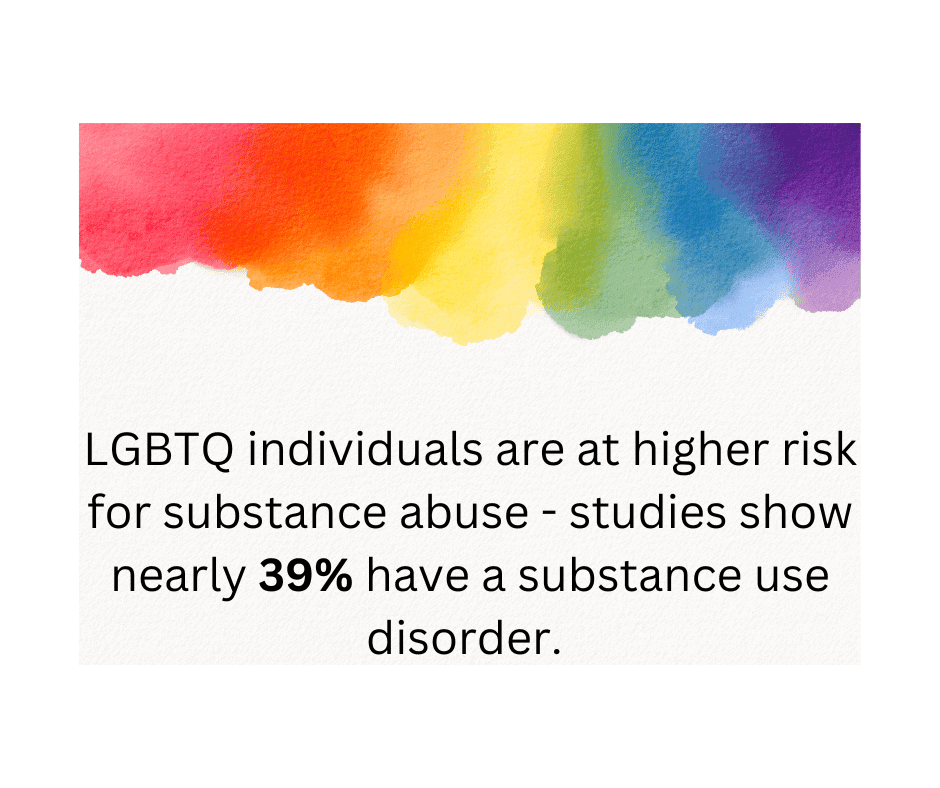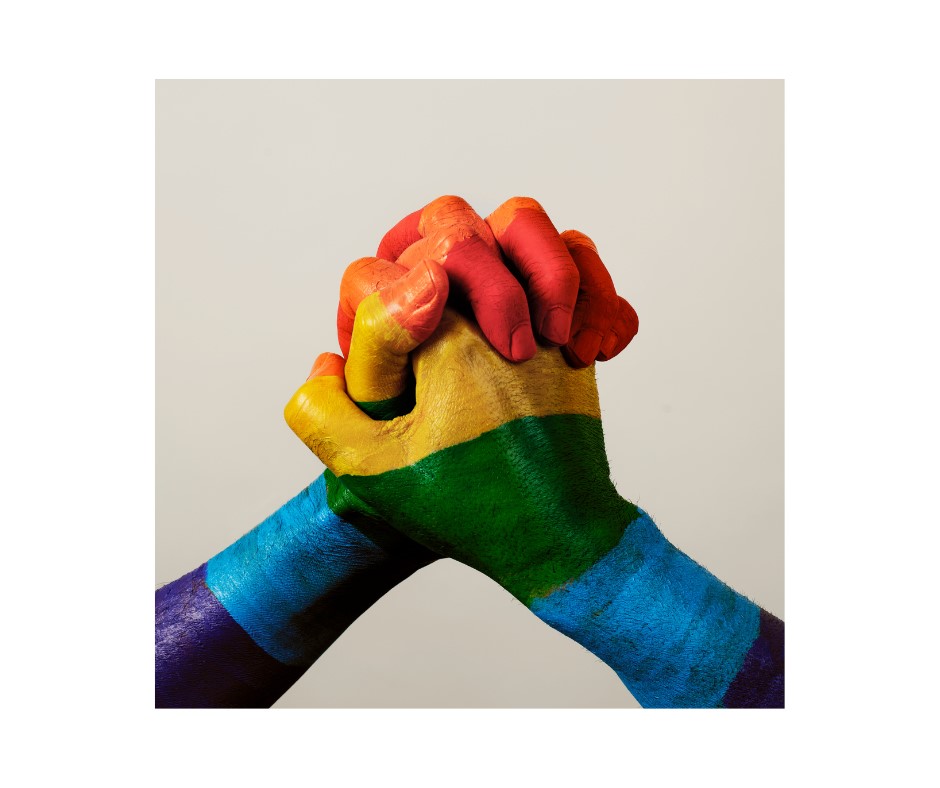You arrive at the decision to seek help for substance abuse or addiction. The path to recovery can seem daunting. However, an LGBTQ rehab center like Society Wellness offers unique benefits that enhance the likelihood of achieving sobriety. Let’s outline the top 10 reasons to choose treatment at an LGBTQ-focused facility. You will learn how specialized programs, therapy approaches, and an understanding environment allow you to focus fully on recovery. The list covers treatment options for commonly abused substances like heroin, methamphetamine, alcohol, and prescription opioids. It also describes the levels of care provided, including partial hospitalization, intensive outpatient, and standard outpatient programs. Evidence-based therapies such as cognitive behavioral therapy and dialectical behavior therapy are highlighted for their effectiveness in promoting long-term sobriety. Reach out to Society Wellness today at (888) 410-4757 to take the courageous first steps toward reclaiming your health and future
Treatment Modalities for LGBTQ+
Evidence-Based Approaches
Society Wellness offers evidence-based treatment modalities tailored for the LGBTQ+ community. These include cognitive behavioral therapy (CBT), dialectical behavior therapy (DBT), and specialized group sessions.
Comprehensive Programs
We provide intensive outpatient programs (IOP), partial hospitalization programs (PHP), and outpatient services. This continuum of care addresses addiction to substances like heroin, methamphetamine, alcohol, opiates, and illicit drugs.
Affirming Environment
Our staff create a safe, affirming space focused on LGBTQ+ cultural awareness and sensitivity. This holistic approach supports your unique journey towards healing and recovery.
What Are the Three Goals of Substance Abuse Treatment?
The three primary goals of substance abuse treatment are:
Achieve Abstinence
The ultimate aim is to help individuals stop using drugs or alcohol completely. This involves developing coping strategies, addressing underlying issues, and building a strong support system.
Prevent Relapse
Even after achieving sobriety, the risk of relapse remains. Treatment equips individuals with tools to identify triggers, manage cravings, and maintain long-term recovery.
Improve Overall Well-being
Substance abuse often impacts mental health, relationships, and daily functioning. Treatment addresses these areas, promoting personal growth and a higher quality of life.
Benefits of CBT for the LGBTQ Community
Overcoming Stigma & Shame
Cognitive-behavioral therapy (CBT) helps LGBTQ individuals overcome internalized stigma, shame, and negative thought patterns related to their sexual orientation or gender identity. Challenging unhelpful beliefs promotes self-acceptance.
Building Healthy Coping Skills
CBT equips LGBTQ people with constructive ways to manage stress, anxiety, depression, and minority stress. Developing positive coping mechanisms fosters resilience against discrimination and rejection.
Improving Relationships
CBT principles applied to LGBTQ relationships address unique challenges like navigating disclosure, accepting partners, and managing disapproval from loved ones. Improved communication and conflict resolution skills strengthen bonds.

Why LGBTQ Addiction Treatment Matters
A Safe, Supportive Environment
You deserve a treatment program that understands your unique needs and challenges. LGBTQ-focused rehabs provide a safe, supportive space free from judgment. Here, you can heal surrounded by others who truly get you.
Specialized Therapy Approaches
LGBTQ individuals are at higher risk for substance abuse –studies show nearly 39% have a substance use disorder. From cognitive behavioral therapy to dialectical behavior therapy, LGBTQ rehabs offer evidence-based treatments tailored for the LGBTQ community. Therapists are trained in LGBTQ-specific issues like internalized stigma.
Holistic Healing
Addiction impacts the whole person –mind, body and spirit. LGBTQ treatment centers take a holistic approach, incorporating complementary methods like yoga, art therapy and nutrition counseling alongside traditional modalities.
Helping an LGBTQ+ Individual in Their Struggle Against Addiction
Seeking professional treatment is the first crucial step for an LGBTQ+ individual battling addiction. Rehab centers that specialize in LGBTQ care provide a safe, inclusive environment catered to their unique needs and experiences.
Compassionate Support
At an LGBTQ-focused facility, counselors deeply understand the societal challenges and minority stressors that can contribute to substance abuse in this community. Patients receive empathetic, gender-affirming care without judgment.
Continuing Care Options
From inpatient to outpatient, partial hospitalization to intensive outpatient programs, LGBTQ rehabs offer a full continuum of care. This comprehensive approach supports long-term recovery after initial treatment ends.
Improved Physical Health
Seeking treatment at an LGBTQ-focused rehab center offers numerous benefits for improved physical wellbeing. Detoxing from substances like heroin, methamphetamines, alcohol, and opioids under medical supervision helps rid the body of harmful toxins.
Through programs like partial hospitalization (PHP), intensive outpatient (IOP), and outpatient treatment, individuals regain physical strength and stamina. Therapies such as cognitive behavioral therapy (CBT) and dialectical behavior therapy (DBT) equip clients with coping mechanisms to avoid relapse.
Overall, LGBTQ rehabs provide a safe, affirming environment to address addiction’s toll on the body and begin the journey toward renewed physical health.
Improved Mental Health
Seeking treatment at an LGBTQ-focused rehab center offers significant benefits for improved mental health. These programs provide a safe, affirming environment tailored to the unique needs and experiences of the LGBTQ community.
Peer Connection
Group therapy sessions connect individuals with others navigating similar journeys, fostering a profound sense of belonging. This powerful support system helps counteract feelings of isolation so common in addiction recovery within the LGBTQ community.
Ongoing Support
LGBTQ-focused rehab centers provide more than just initial treatment. They offer crucial ongoing support to help prevent relapse and foster long-term recovery.
Aftercare Programs
After completing an inpatient or intensive outpatient program, many centers offer aftercare services. This may include regular counseling, support groups, access to sober living homes, and more.
Alumni Communities
Many LGBTQ rehabs have active alumni networks that allow you to stay connected. These communities provide encouragement, mentorship opportunities, social activities, and a sense of belonging.
Conclusion
In closing, seeking treatment at a LGBTQ-specific rehab center provides numerous benefits for the LGBTQ community. The welcoming environment, tailored treatment options, and understanding staff allow LGBTQ individuals to focus fully on recovery in a judgement-free zone. Whether you or a loved one is struggling with heroin, methamphetamine, alcohol, illicit drugs or opiates, the programs at LGBTQ rehab centers can help. From partial hospitalization to intensive outpatient and standard outpatient levels of care, these centers offer evidence-based treatment modalities like CBT and DBT. Don’t wait to get the specialized help you deserve. Reach out to Society Wellness today at (888) 410-4757 to take the first step towards lasting sobriety and a healthier, happier life.
FAQ: What Are the Top 10 Benefits of Seeking Treatment at an LGBTQ Rehab Center?
- Safe, inclusive environment tailored to LGBTQ needs and experiences.
- Specialized treatment for substance abuse issues prevalent in the LGBTQ community like alcohol, opiates, methamphetamines, and heroin addiction.
- Evidence-based therapies such as cognitive behavioral therapy (CBT) and dialectical behavior therapy (DBT).
- LGBTQ-affirmative counseling addressing minority stress, discrimination, and self-acceptance.
- Holistic healing through alternative therapies like art, music, yoga, and mindfulness.
- Robust continuum of care with intensive outpatient (IOP), partial hospitalization (PHP), and outpatient programs.
- Peer support and community connections fostering long-term recovery.
- Family therapy and education promoting understanding and healing relationships.
- Focus on overall wellness – physical, mental, emotional, social, and spiritual.
- Higher satisfaction rates and better treatment outcomes sensitive to LGBTQ identities.
